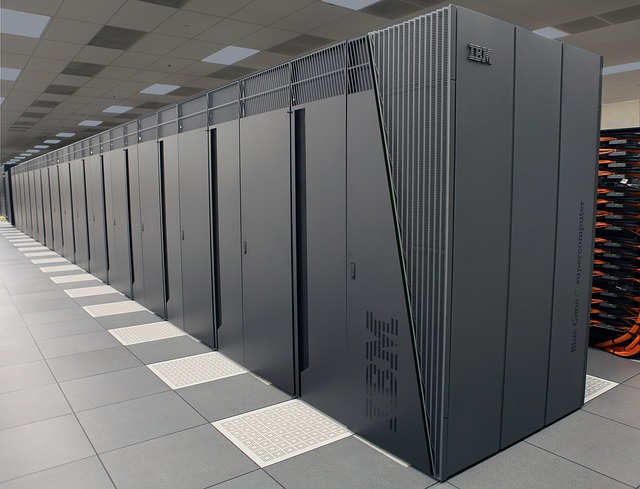IBM Counts On Red Hat Acquisition To Deliver Growth
IBM’s (NYSE: IBM ) recently reported its fourth-quarter earnings that surpassed market expectations and sent the stock climbing 7% higher in the after-hours session. This was also the first time since 2011 that the company reported growth in revenues for the full year. Its robust performance was driven by growth in the cloud segment – an area of focus for IBM’s turnaround strategy.

IBM’s Financials
Revenues for the fourth quarter fell 3.5% to $21.76 billion, ahead of the Street’s forecast of $21.73 billion. Adjusted earnings of $4.87 for the quarter were also better than the Street’s estimates of $4.82.
By segment, revenues from Cognitive Solutions that includes solutions software and transaction processing software were flat over the year at $5.5 billion. The market was looking for revenues of $5.3 billion from the segment. Global Business Services segment including consulting, application management and global process services grew 4% to $4.3 billion. Technology Services & Cloud Platforms segment including infrastructure services, technical support services, and integration software fell 3% to $8.9 billion. Systems revenues were down 21% to $2.6 billion and Global Financing revenues fell 11% to $402 million.
IBM has been counting on its strategic imperatives revenues that include the cloud, analytics, mobile, social, and security services. It recorded nearly $40 million in revenues generated from these businesses during the trailing 12 month period. These lines of business now account for nearly half of IBM’s revenues.
For the year, IBM saw revenues grow 1% over the year to $79.6 billion with strategic imperatives revenues growing 9% to $39.8 billion and cloud revenues growing 12% to $19.2 billion. IBM ended the year with a non-GAAP EPS of $13.81.
IBM expects to end the current year with an EPS of at least $13.90, which was also ahead of the market’s forecast earnings of $13.79 per share.
IBM’s Red Hat Acquisition
IBM has been focused on driving growth through acquisitions. The biggest news in the previous quarter has been its $34 billion acquisition of open source cloud software provider Red Hat. The acquisition is known to be the biggest open-source business deal ever.
Red Hat had recently completed its 25th year of business. Red Hat began its operations as a distributor of its open-source operating system Linux. Since then Red Hat has come a long way. It is now known for distributing and supporting the Enterprise Linux and other technologies used in data centers. The company had been delivering disappointing results of late with financials missing market expectations. It went public in 1999 and in October last year, it had reported quarterly revenues of $822.7 million with an EPS of $0.85. It had reported revenues of $2.92 billion in its last fiscal year.
IBM is counting on Red Hat’s OpenShift, the self-contained Kubernetes solution, to help it gain ground in the cloud market. It believes that most companies today use the cloud strategy as an option to rent computing power and thus reduce costs. But they are missing out on the greater potential of the cloud business, which involves shifting business applications to the hybrid cloud, extracting more data, and optimizing every function of the business to drive efficiencies, growth, and value. By acquiring Red Hat, IBM plans to become the leading hybrid cloud provider. It plans on offering companies the only open cloud solution that will help unlock this identified potential.
While IBM is convinced that it is doing the right thing with the acquisition, the market is still skeptical about it. Some analysts suggest that the purchase may be a right move strategically, but it comes with “significant integration risk and a high cost that may be difficult to justify”. I think only time will tell if IBM made the right move with the acquisition. But what do you think about the acquisition? Was it money well spent, or should IBM have searched for smaller, bootstrapped start-ups to get more bang for its buck?
Its stock is trading at $132.89 with a market capitalization of $120.7 billion. It touched a 52-week high of $168.72 in January last year. It had fallen to a 52-week low of $105.94 in December last year.



